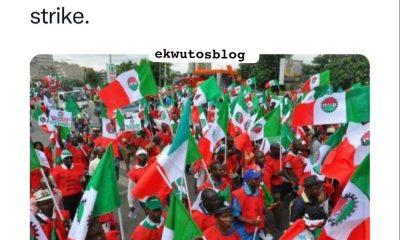By Renju Jose and Byron Kaye
SYDNEY (Reuters) -Australia moved closer on Wednesday to banning social media for children under 16 after the parliament’s lower house passed a bill even as Alphabet’s Google and Facebook-owner Meta pressed the government to delay the legislation.
Marking some of the toughest social media controls in the world, Australia’s House of Representatives passed the bill 102 votes to 13 after Prime Minister Anthony Albanese’s centre-left Labor government secured bipartisan support for the ban.
Albanese, trying to lift his approval ratings ahead of an election expected in May, has argued that excessive use of social media poses risks to the physical and mental health of children and is looking for support from parents.
The planned law would force social media platforms to take reasonable steps to ensure age-verification protections are in place. Companies could be fined up to A$49.5 million ($32 million) for systemic breaches.
Australia plans to trial an age-verification system that may include biometrics or government identification to enforce the ban.
A Senate committee backed the bill this week, but also inserted a condition that social media platforms should not force users to submit personal data such as passport and other digital identification to prove their age.
The committee added that the government must “meaningfully engage” with youth when framing the law.
“Young people, and in particular diverse cohorts, must be at the centre of the conversation as an age restriction is implemented to ensure there are constructive pathways for connection,” committee Chair Senator Karen Grogan said.
In submissions to parliament, Google and Meta said the ban should be delayed until the age-verification trial finishes, expected in mid-2025. Bytedance’s TikTok said the bill needed more consultation, while Elon Musk’s X said the proposed law might hurt children’s human rights.
IMPACT ON FAMILIES
The ban was first announced during an emotionally charged parliamentary inquiry into social media, which included testimony from parents of children who had self-harmed due to cyber bullying.
It has fuelled vigorous debate with youth advocates arguing it robs children of a voice and parent groups saying under-16s are too young to navigate the digital world.
Teenagers have said the law could cut them off from their most important social and family connections, arguing a ban is not the solution.
“I understand that using social media a lot is not a good thing and I’m working on it,” said Sydney high-school student Enie Lam, 16. “But a ban is not going to work,” she said.
Albanese’s party, which does not control the Senate, won crucial support from the opposition conservatives for the bill, but has failed to win over the left-leaning Greens and some far-right lawmakers on civil liberties and privacy grounds.
One conservative lower house member broke from their party and voted against the bill on Wednesday, a rare event in Australian politics, and two conservative senators said they also would vote against it, arguing the law should be delayed until the age-verification trial was complete.
Even the Australian Human Rights Commission, an independent statutory authority, opposed the ban saying it violated children’s rights to self-expression and to participate in society.
Still, polling shows public support overwhelmingly in favour of the move. A YouGov survey released this week showed 77% of Australians backed the ban, up from 61% in August.
Australian media, from the publicly owned Australian Broadcasting Corp to Rupert Murdoch’s News Corp, also support the ban. An editorial campaign by News Corp, the country’s biggest newspaper publisher, pushed for the ban under the banner “Let Them Be Kids”.
“Our members feel that this is one of the biggest issues impacting on themselves and their families at the moment,” said Jenny Branch-Allen, president of the Australian Parents Council, an advocacy group.
“Big companies have to start taking responsibility. Let’s try and reduce the incidents we’re hearing involved with social media and young people in Australia.”
($1 = 1.5451 Australian dollars)




 Politics9 months ago
Politics9 months ago
 Business10 months ago
Business10 months ago
 Politics6 months ago
Politics6 months ago
 SportsNews9 months ago
SportsNews9 months ago
 Politics9 months ago
Politics9 months ago
 Entertainment9 months ago
Entertainment9 months ago
 Politics6 months ago
Politics6 months ago
 Business9 months ago
Business9 months ago













